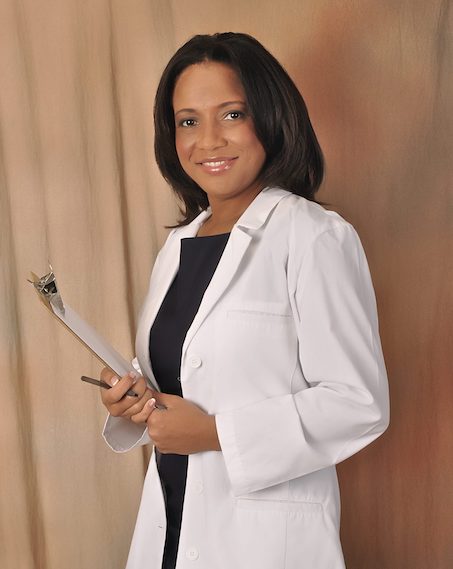So many people think that their health will naturally decline as they age. While we can’t stop the process of aging, we can be proactive to prevent many health issues before they even occur. The truth is, the better we care for our bodies in our 20s, 30s and on, the fewer symptoms and conditions we’ll experience later in life. Often this includes finding a healthcare professional trained in preventive medicine. This is someone who can look at your risk factors and lifestyle, and environment, and guide you to making positive changes to prevent future illness.
The following is a post written by my friend and colleague, Dr. Tamyra Comeaux. Dr. Comeaux is an OB/GYN with a master’s degree in Holistic Nutrition and a medical degree in Naturopathic Medicine. She has a passion for preventive medicine and teaching people steps to improve their health and remove or reduce medicines and drugs. Come check out Dr. Comeaux’s episode on The Lindsey Elmore Show about Staying Younger Longer.
Don’t Wait for Symptoms
I saw a patient this week who came to see me for natural options to improve her bone loss. Seven years ago she had a bone density test and it was normal. Then four years later she had another test which revealed osteopenia (loss of bone but not yet osteoporosis). Then two years later, she had progressed to full blown osteoporosis. It was at this point that a physician offered her medication. She was not excited about taking a prescription medication.

So what would’ve happened if seven years ago she had started a bone supportive regimen?
She did not take calcium, magnesium, or vitamin D. If she were aware of a deficiency in any of these nutrients and had replaced them, would she have progressed from normal bone density to osteoporosis in seven years? Likely not.
This highlights why I am so interested in menopausal therapy. Things start evolving rapidly as we approach middle age. But if we stay ahead of the changes, it is exciting to see how can we avert some of the common pitfalls.
Once I diagnose a person with a particular condition I often think, “If I could have intervened 5 or 10 years ago with preventive medicine, would the patient have this condition today?” And very often the answer is “probably not!”
For example, suppose you knew you were going to get diabetes in 10 years. You could reduce your sugar intake and start using a glucose-regulating tea or supplement regularly. Would you still get diabetes in the same time frame, or at all? Maybe not.
As we age and go through menopause our cholesterol levels steadily increase. What if you ate a high fiber cereal or salmon regularly prior to menopause?
I could go on and on!
Overcoming a Genetic Disposition with Preventive Medicine
With patients entering their 40s and 50s, we look for clues about what may happen as they get older. We look at the health histories of parents, older siblings or grandparents and use that knowledge in our preemptive planning. Beginning a preventive medicine approach early gives them the best chance of overcoming a genetic disposition to illness.

What commonly happens in the real world is that we don’t we don’t look for ways to prevent conditions. Instead, we just accept the fact that at some point we’ll end up on whatever medication is covered by our insurance plan. People often say to me, “It’s just genetic, everyone in my family had it, and that is my fate.”
More than 100 types of genes may play a small role in a person’s risk for heart disease, but by far the biggest factor is lifestyle. Nowadays it is common for people to have access to their genetic information. So if you know that you have a gene for something, you can use that information to make a better plan and possibly avoid the expression of that genetic programming. Food is powerful information to your genes. Finding foods that work best for your body BEFORE you receive any type of diagnosis could be advantageous.
There are many things that we can do to alter our health path. How you take care of your genes is important. It is not always what you START doing that makes a difference in your aging pathway, but what you STOP doing. I often encourage my patients to evaluate their cosmetics, deodorant, cleaning products, and reduce their exposure to chemicals.
And that is why I was drawn to taking care of the needs of menopausal women, because the list of things that is on the horizon gets longer and longer, and we do have options. Sadly, many women don’t find out what the options are until it is too late!
Once you start taking one medication, it does not stop you from ending up on several more. You never really found out WHY you needed the medication, did you? However, sometimes changing your diet and addressing your vitamin deficiencies can have an impact on how much money you will spend on prescriptions and medical procedures in the future.
Learn More

In my book, Menopause Essentials, The Ultimate guide to Optimal Aging, I examine many potential options and strategies to incorporate into your daily life that might help you deal with the pitfalls that can come with aging. Small actions done daily and over time can add up to create a longer health span. If you have not realized your full health potential, it is time to begin the journey!
Follow Dr. Comeaux on Instagram or Facebook @drcomeaux and @menopauseessentials, or on her website.
The book is available on Amazon and Growing Healthy Homes.
Want to learn more about preventive medicine and taking control of your health? Download this free eBook, 5 Steps to Take Control of Your Health.

